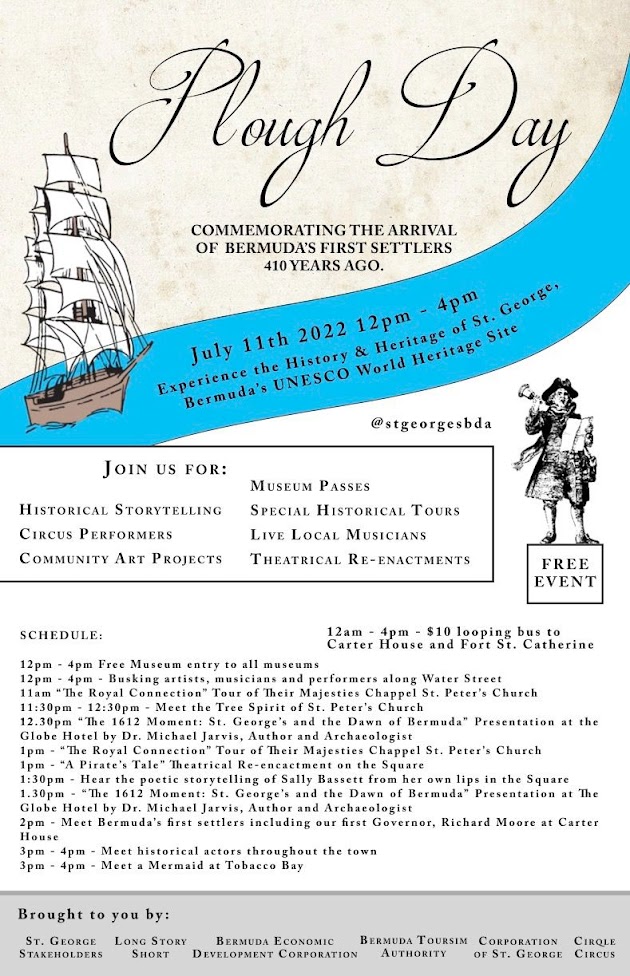

"After the time of our landing many of the company digged certaine plats of ground, and sowed diuers sortes of seedes to make triall of the ground, and for certaine they were seen aboue the ground sprung vp the fourth day after their sowing: and amongst all the rest of the seeds, the Cowcumber and the Mellon were forward : we haue set and sowed fourescore and one sorts of seeds, it was ten dayes before the shippes comming away, and for the most part they are all come vp."
The unknown settler-author also forwarded the text of a covenant to which Moore and the other settlers bound themselves on August 2 - arguably Bermuda's first constitution: "Seeing the true worship of God and a holy Life cannot bee severed, wee doe therefore promise in the presence aforesaid, That to the uttermost of our power we will live together in doing that which is just, both towards God and Man" and also " to avoide all things that stand not with the good estate of a Christian Church and well governed Commonwealth." Eight years before the more well-known Mayflower Compact, Bermuda's first settlers gathered on Smith's Island to pledge themselves to create an orderly Godly community.
Aside from this window into English first impressions of Bermuda's bounty, this first "Letter from Bermuda" hints at the sorts of features we might find at Smallpox Bay if this was Moore's landfall - houses, gardens, perhaps a well. The account also establishes that Moore relocated to found the Town of St. George only after the Plough departed, or the author would have mentioned this.
Although I would love to report to you that we stood on the very spot where Moore's compact was formalized on Plough Day, the current 16-24 knot winds buffeting us were not favourable to crossing over from Paget Island in a small boat, so the team enjoyed a surprise day off while I gave public lectures about the Plough's arrival and Bermuda's first decade of settlement at the Globe Hotel in St. George's. It was a fun time and well attended - but a very wet ride to and from town through whitecaps!



Comments